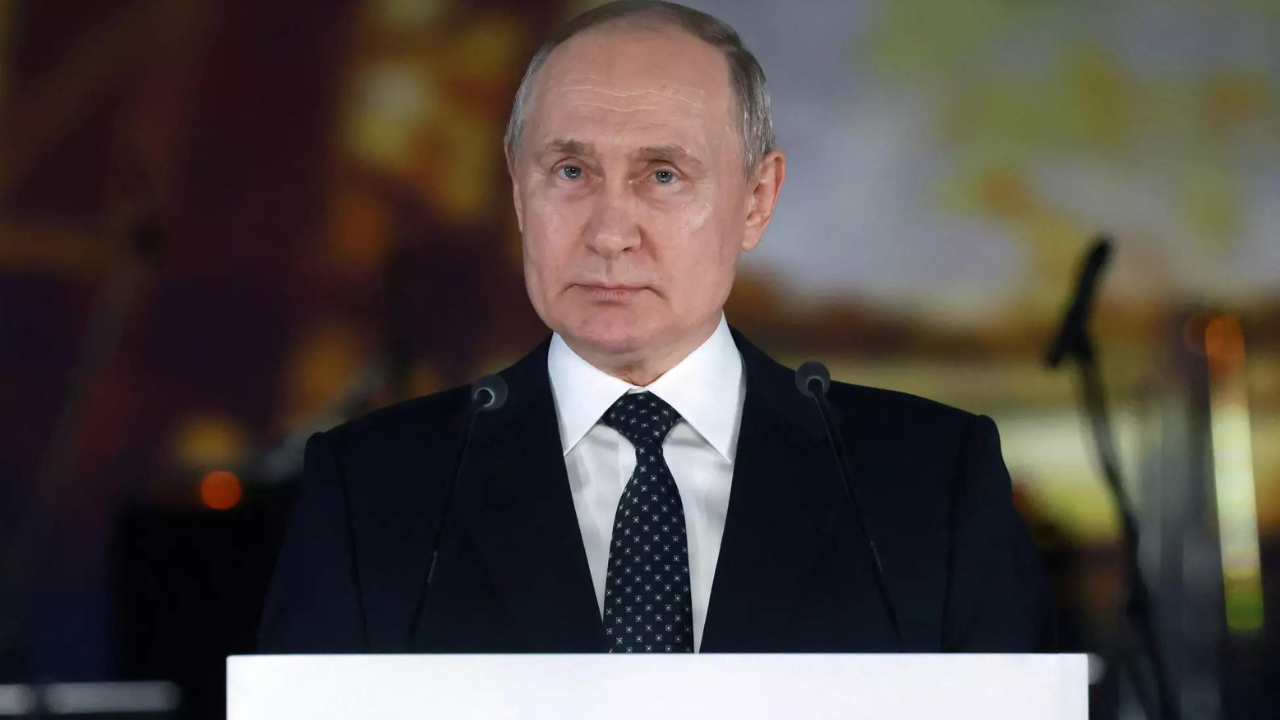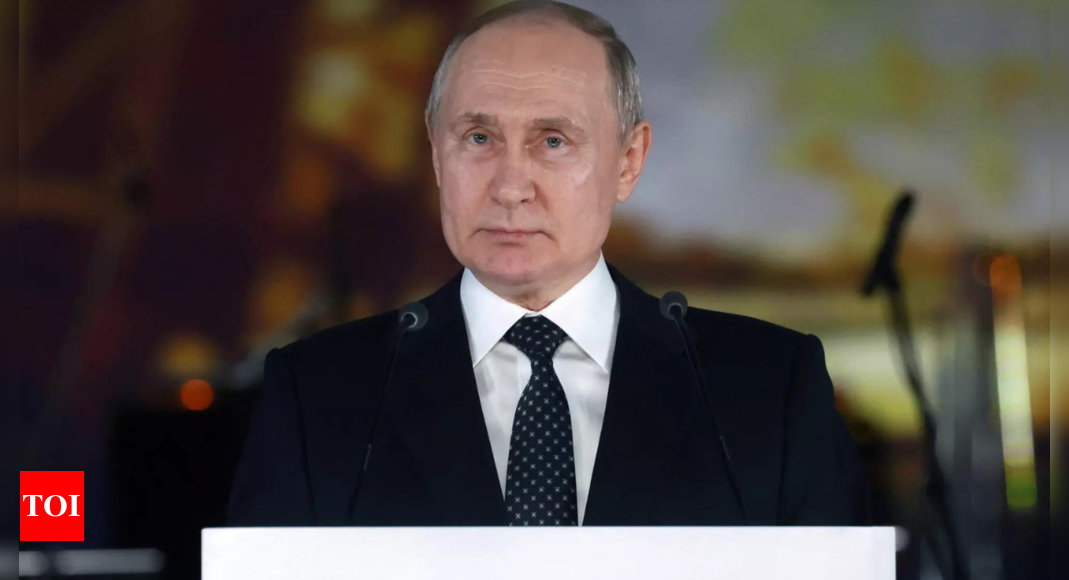
LONDON: Jailed Kremlin critic Alexei Navalny on Thursday urged Russians to protest against President Vladimir Putin on election day in March by all turning out to vote at noon.
Posting via his supporters on social media, Navalny argued it was not enough to vote against Putin because the Kremlin would rig the result anyway, using an electronic voting system being deployed in a presidential election for the first time.
But he said the sight of big crowds turning out at noon on March 17 would send a strong signal while not putting anyone at risk.
“This can be a powerful demonstration of the mood of the country,” Navalny wrote on his Telegram channel, controlled by his team.
Large protests are extremely rare in Russia due to the risk of arrest – especially since the start of the war with Ukraine. But Navalny said this one would be safe because voting was legal and officially encouraged.
“At 12 noon there is already a high turnout, there are a lot of people, and it’s simply impossible to single out those voting ‘against’,” he said.
“This will be a nationwide protest against Putin that takes place near your home. It’s available to everyone, everywhere. Millions will be able to take part. And tens of millions will witness it.”
Navalny, 47, is currently serving sentences in an Arctic penal colony totalling more than 30 years on charges including extremism, which he says were all trumped up to silence him.
His supporters say it is impossible to prevent Putin, in power as prime minister or president since 1999, extending his rule by six more years – putting him on course to overtake Josef Stalin and become Russia’s longest-serving ruler since the 18th century.
But the Navalny camp wants to use the campaign period as an opportunity to fan opposition to Putin and the war, not least by cold-calling voters from outside Russia.
The Kremlin says Putin will win simply because he commands popular support and is trusted, with opinion poll ratings of around 80%.
Among those bidding to run against him, the only one who has strongly criticised Putin and the war is Boris Nadezhdin, who presented the signatures of more than 100,000 supporters to the electoral commission on Wednesday and will learn next week if it has validated them and will allow him to stand.
Voters in about a third of Russia’s regions, including Moscow, can choose to cast ballots via a remote electronic system. Critics say electronic voting is impervious to outside scrutiny and easy for authorities to manipulate.
Posting via his supporters on social media, Navalny argued it was not enough to vote against Putin because the Kremlin would rig the result anyway, using an electronic voting system being deployed in a presidential election for the first time.
But he said the sight of big crowds turning out at noon on March 17 would send a strong signal while not putting anyone at risk.
“This can be a powerful demonstration of the mood of the country,” Navalny wrote on his Telegram channel, controlled by his team.
Large protests are extremely rare in Russia due to the risk of arrest – especially since the start of the war with Ukraine. But Navalny said this one would be safe because voting was legal and officially encouraged.
“At 12 noon there is already a high turnout, there are a lot of people, and it’s simply impossible to single out those voting ‘against’,” he said.
“This will be a nationwide protest against Putin that takes place near your home. It’s available to everyone, everywhere. Millions will be able to take part. And tens of millions will witness it.”
Navalny, 47, is currently serving sentences in an Arctic penal colony totalling more than 30 years on charges including extremism, which he says were all trumped up to silence him.
His supporters say it is impossible to prevent Putin, in power as prime minister or president since 1999, extending his rule by six more years – putting him on course to overtake Josef Stalin and become Russia’s longest-serving ruler since the 18th century.
But the Navalny camp wants to use the campaign period as an opportunity to fan opposition to Putin and the war, not least by cold-calling voters from outside Russia.
The Kremlin says Putin will win simply because he commands popular support and is trusted, with opinion poll ratings of around 80%.
Among those bidding to run against him, the only one who has strongly criticised Putin and the war is Boris Nadezhdin, who presented the signatures of more than 100,000 supporters to the electoral commission on Wednesday and will learn next week if it has validated them and will allow him to stand.
Voters in about a third of Russia’s regions, including Moscow, can choose to cast ballots via a remote electronic system. Critics say electronic voting is impervious to outside scrutiny and easy for authorities to manipulate.
Source link

